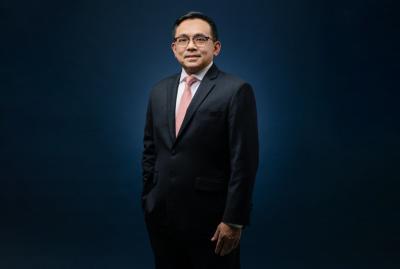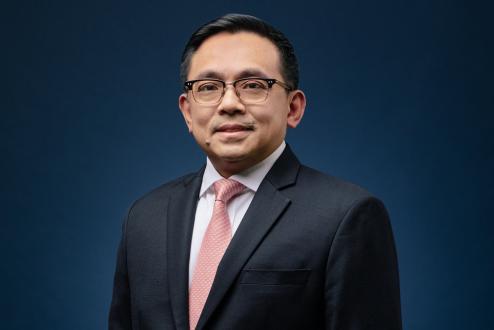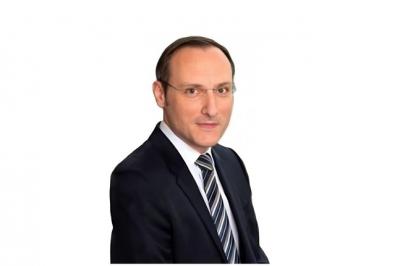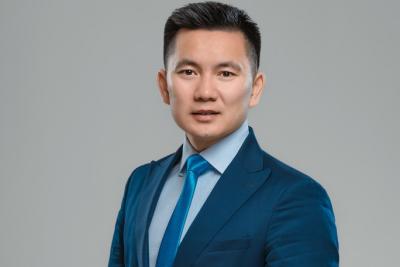EquitiesFirst’s Singapore MD on the Firm’s Rather Unique and Flexible Stock Financing for Private Clients

Apr 3, 2022
How easy is it to obtain a 60% to 70% LTV loan against single listed stocks or a portfolio of public market equities? And at a fixed rate for a fixed term of up to 3 years? And all with no personal guarantee involved and no restrictions on how the borrowers employ the proceeds? Really not easy at all, but EquitiesFirst offers precisely that. EquitiesFirst was founded in 2002 by American financier and entrepreneur, Alexander Christy, Jr., and describes itself as a global institutional investment firm. The business has scaled substantially in the past two decades and is today licensed in eight countries where required and operates through 12 international offices, of which six are in the vast APAC region. Recently, they have built a loan book of USD3 billion worldwide, and become a financing partner to hundreds of entrepreneurs, listed companies, and investors. Johnny Heng is Managing Director and Head of Singapore at EquitiesFirst, and when we ‘met’ him recently for the first time, he explained how the firm delivers what they call ‘Progressive Capital’, a differentiated approach of ‘investing by lending’ to align their interests with borrowers as co-investors for the loan term. Heng joined EquitiesFirst in September 2021 and brings with him some real pedigree – he worked for nearly a decade in New York and London for sovereign wealth giant Government Investment Corporation of Singapore and in wealth management for leading names such as Coutts, Credit Suisse and Nomura. His presence at the helm of the EquitiesFirst Singapore office will no doubt help the firm expand in the wealth community at home and the neighbouring markets such as Malaysia and Indonesia.
In the EquitiesFirst marketing material, founder and controlling shareholder Christy, Jr reports that his motivation for the creation of the firm dates back to 1997, when he structured an equity-backed financing loan to save a third-generation, family-owned apple farm in Michigan. While relatively small, that financial support apparently saved the family’s legacy and allowed their farm to thrive once again. Starting from this original idea, the firm’s strategy has been to invest through lending, and over nearly two decades has refined their model of equity-backed financing and grown to institutional scale, and internationally.
Value first
“We are first of all value investors, as we take the collateral, the listed shares, and manage them as part of our global portfolio during the tenure of the loans, and at the end, the borrower repays and receives their stock back in full,” Heng reports. “We provide liquidity to our partners for the long term and at fixed rates. In an otherwise limited world of traditional finance, our innovative equity-backed funding and investment model brings a refreshing alternative source of liquidity to shareholders.”
A fine pedigree
Heng himself leads EquitiesFirst's origination strategies in Singapore while overseeing the firm’s operations in the market across all business lines. With over 25 years of professional experience in sovereign wealth and private wealth management, Heng offers deep industry knowledge and expertise in wealth management and investment advisory.
He reports that the Hong Kong office is the larger operation and houses the CEO for Asia, Gordon Crosbie-Walsh, while Singapore is smaller, but is on a robust growth trajectory. Crosbie-Walsh oversees business development across the firm’s six offices in Hong Kong, Singapore, Thailand, South Korea and Shanghai and Beijing in China, while Heng is also responsible for expanding in neighbouring SE Asian markets such as Malaysia and Indonesia.
Prior to joining EquitiesFirst, Johnny was the chief client officer at Nomura Wealth Management. He also held senior roles in Coutts, Credit Suisse, Wah Hin & Company, and worked for the Government of Singapore Investment Corporation for over a decade in London, New York and Singapore, managing equities trading divisions.
A rather unique approach
Heng explains that the firm’s unique method of portfolio construction establishes each position they take through equity-backed financing provided directly to long-term investors. The EquitiesFirst portfolio is diversified across global markets and industry sectors.
“Our investment team generates alpha on each position, as any long-only investment manager would, through robust fundamental and technical analysis, risk management and ongoing trading and portfolio rebalancing activity,” he reports. “Our investment strategy does not employ short-selling or permit lending assets to third parties.”
He reports that the structure is simple. EquitiesFirst issues a loan to the asset owner and receives equity as pledged collateral in order to establish a long position in its portfolio. The asset owner receives favourable, fixed loan terms in exchange. Interest rates typically range between 3% to 4% and LTV ratios usually range between 60% and 70%.
Discretion during the loan term
“During the term of the loan, EquitiesFirst maintains title and custody of the equity collateral, and the investment team has the discretion to rebalance the portfolio and engage in trading and risk management activity,” he elucidates. “When the loan is repaid, the full number of shares is returned. The asset owner retains 100% of the equity upside appreciation.”
The core assets the firm funds comprise listed stocks, and very gradually, they are handling selected cryptocurrencies. “We used to be pure equities, until some six years ago, we started to offer loans against cryptocurrency as well, and that activity has really taken off on the past year or two,” Heng explains.
Plugging a significant gap
He comments that there is a gap in the market the firm serves, especially around the terms offered. “We provide fixed rate funding, and the market in general offers floating rates for these structures,” he explains. “Secondly, most deals on offer are callable by the lenders with 60-day notice, whereas we provide certainty in terms of a fixed tenure as agreed at the beginning of the transaction, in other words two years is two years and there are no recalls.”
Heng also reports that at the end of the financing tenure, the client gets to keep whatever upside is built into the stock. “By coming to us, even for a very defensive switch to cash holding approach, that gives the client the continued exposure to the stocks’ economics as well as the price performance once the loan transaction is completed,” he says.
Typical clients
As to the client base, he reports these are professional investors or accredited investors, including institutions like family offices and sometimes external asset managers, as well. “We focus only on a narrow group of customers,” he reports. “Sometimes, the end private clients, the individuals, will come to know of us and approach us directly. As long as they are professional investors/accredited investors, we are able to have direct dealings with such clients without an intermediary like external asset manager or private bank.”
Working with the private banks
Heng notes the firm also partners with a number of private banks which are not able to offer these types of terms. “For example, not every private bank is able to offer these loans, especially single stock backed financing, they generally need a diversified portfolio,” he reports. “Moreover, most private banks would want the clients to reinvest through the banks in their own products. Some of them will not be able to do deals for certain markets, such as Malaysia, Indonesia and others, or where the stock is held by majority shareholders and founders. So, we collaborate and work well with the banks for a number of situations.”
He notes that there is no competitive issue in this type of arrangement, as the capabilities that EquitiesFirst offers do not conflict with the banks. “We align capabilities, we are not in any competition, as they secure funding for their clients, and we help the banks and the clients.”
The basic structure
Once EquitiesFirst has conducted its due diligence on the clients and valuation of the underlying assets, and agreed the terms, the transaction is structured as a repurchase agreement.
“We purchase the stocks or other assets in consideration of the loan amount based on a normal 60% to 70% leverage for stocks, and a fixed coupon of 3% to 4%,” he reports. “The clients are leveraging for reinvestment, they want to make more money, or they might want to expand into other businesses. We do not debate what they do with the money we provide; we make no stipulations on those funds, the clients can do as they wish.”
Essentially, therefore, the risk to the clients is that they do not make enough to cover the cost of funding through their redeployment of the proceeds. “And for us,” Heng adds, “we are able to treat all the assets that we take as if they are our own during the lifetime of the loans; we manage them as part of a highly diversified global portfolio, creating another source of revenue for us.”
Heng explains that as a result of the structure they offer, the risk is very much on EquitiesFirst’s books, either should the borrower renege or the assets under-perform or worse. “But the risks are essentially standard and calculable, and we have immense experience and spend a lot of time and expertise analysing the collateral,” he says.
No personal head on the block
Other advantages for the borrowers include the lack of personal guarantees. “The loans we sign are non-recourse to the individuals in the event that the assets that they pledge do not perform, or if the borrower has problems paying the interest or repaying the loan,” Heng reports.
“In any of these cases, the only thing that they stand to lose will be the asset that’s being pledged, so we cannot go after the borrower's other assets. That provides a lot of certainty as well as freedom for the borrower, knowing for sure that the only thing that they could stand to lose is if their asset with us loses its value or if they don't perform their side of the agreement.”
As to credibility, Heng reports that the firm is licensed in eight leading markets, and uses reputable custodians to custodise the stocks. “There has been some negative press and social media around our offering, but that is false information and we have in every case taken legal action. I reiterate, EquitiesFirst is fully licensed where required, and we work with many highly reputable and well-established custodians, partners and intermediaries.”
Day to day cases
He offers the example of how EquitiesFirst might work with a multi-family office (MFO) in Singapore. Very often, he reports that MFOs may be proposing certain investment ideas, which can range from raising cash because of a defensive investment outlook to looking for alternative investments, perhaps hedge funds or another avenue and ask their private clients to asset allocate into those.
“And perhaps instead of selling outright, clients may actually look at these stocks as long-term holdings, and not wish to sell, so, we might provide funding to monetise this for a fixed term so the cash proceeds can be used to allocate into another alternative investment during that time,” he explains.
Rising above illiquidity
He notes that MFOs, for example, might have very niche investment propositions for their clients, and many might be illiquid in the sense that the buyers need to lock up for two to three years. “In such cases, those buyers struggle to fund those investments elsewhere, as the loans are generally callable whereas the investments require long-term holds. Hence, we are at a great advantage as we can offer, for example, a three-year fixed term that matches their holding period requirements.”
Key Priorities
Heng reports the first mission is to build the footprint in Southeast Asia, with Singapore as the hub for the region. Secondly, they want to connect to more EAMs and IAMs and MFOs in Singapore, as natural clients of the firm for the future. And the third priority is to build more connectivity with business owners and clients directly in Singapore, which is such a hub of economic activity and diversity.
Additionally, the plan is to ratchet up activity around crypto financing. “Being in Singapore, which is becoming a digital assets hub and where the regulators are working hard to improve the ecosystem and regulatory coverage, this is another significant opportunity for us,” he explains.
We finance against Bitcoin, Bitcoin Cash, Ethereum and Litecoin. The typical LTV for cryptos is 60% while the loan term tends to be between 12 to 18 months. Interest rates are in the region of 4%.
A nice market niche
Heng closes the discussion by remarking that from his background in wealth management, he believes that EquitiesFirst is fulfilling a role that helps private clients in areas that for a variety of reasons the private banks prefer not to cover. “We offer these clients clarity, tenure, freedom from personal guarantor scenarios, fair LTVs and rates, and basically a valuable facility they might struggle to obtain elsewhere,” he says. “The more we can get our name out in wealth management circles and explain our concept and approach, the more we will work closely and collaboratively with the wealth community.”
Getting Personal with Johnny Heng
Johnny Heng has been the head of the Singapore office of EquitiesFirst since September 2021.Prior to joining EquitiesFirst, Johnny was the chief client officer at Nomura Wealth Management. He also held senior roles in Coutts, Credit Suisse, Wah Hin & Company, and worked for the Government of Singapore Investment Corporation for over a decade in London, New York and Singapore, managing equities trading divisions.
A Singaporean by birth, he holds a Master’s degree in science from Baruch College, City University of New York and a Bachelor’s degree in economics from the National University of Singapore. Believing in lifelong learning, and always filled with curiosity, Johnny pursued his legal training in the School of Law at
the Singapore University of Social Sciences. He will be conferred the Doctor of Jurisprudence degree in April 2022.
“Supported by the MAS and Nomura, I attended the inaugural Asian Financial Leaders Programme in 2016, giving me the opportunity to learn from renown faculties in the Wharton Business School, IMD, Tsinghua University, as part of my ongoing executive education,” he reports. “And I completed my Law Degree actually in December 2021, soon after I joined EquitiesFirst. I am genuinely a believer in upskilling and expanding knowledge and capabilities thorough one’s life.”
He says that before his current role, a career highlight was managing a single-family office through the global financial crisis. “That was so intensive at the time, as you might imagine, and we not only weathered those storms, but we also sought out and found some very interesting opportunities,” he recalls. “And in terms of more formal roles with major institutions, I really enjoyed my tenure at GIC and also my time with Coutts, Credit Suisse and Nomura in wealth management. The GIC role took me also to London and New York, and then wealth management offered me very different challenges and perspectives.”
Spare time might be spent playing badminton, enjoying social golf – he is a member of the Singapore Island Country Club - and occasionally playing soccer.
Johnny says that a positive for him to emerge from the pandemic has been the rise in collective mindfulness around social responsibility and community. “We are not all dashing around hither and thither and although we maintain a firm business and commercial grasp of reality, we are all perhaps seeing different perspectives, perhaps forgotten aspects of life that are also very important.”

Managing Director and Head of Singapore at EquitiesFirst

More from Johnny Heng, EquitiesFirst
Latest Articles






